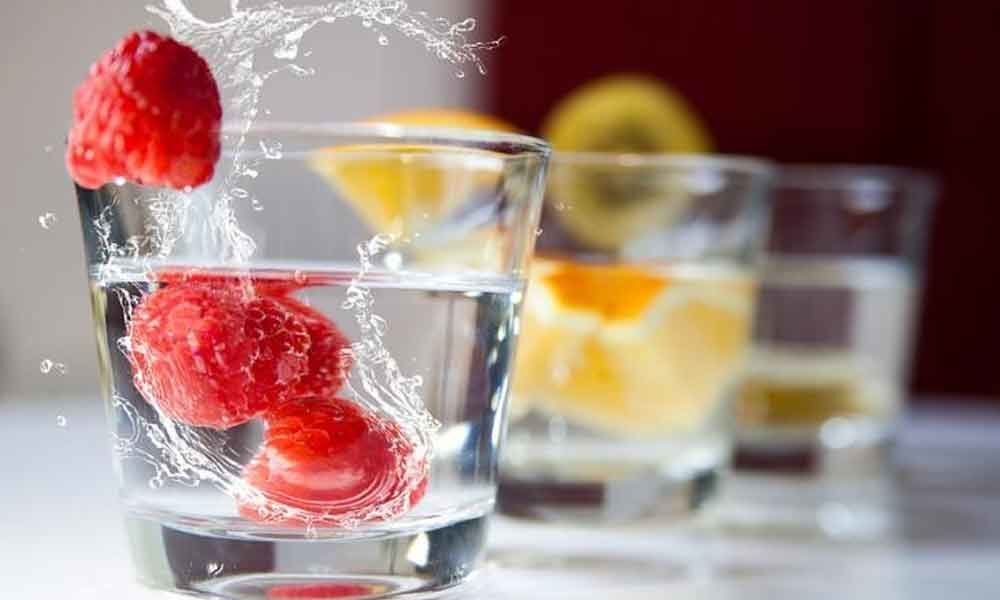Live
- Apple launches iPad Pro with M4 chip and AI capabilities
- Congress stands for National unity says Arathi Krishna
- The dynamics of tax cuts and collections under Modi govt: A tale of prosperity
- ‘Inspiring to see the focus of sports expanding beyond cricket’: State-of-the-Art sports arena unveiled in Delhi
- Voltas Q4 net profit dips 19 per cent, declares dividend of Rs 5.50 per share
- Madigas should Vote for BJP to protect their self respect.Manda Krishna madiga
- Rahul waves copy of Constitution at Jharkhand rally, says ‘ready to sacrifice life to protect it’
- PB Fintech sees 62 per cent profit surge to Rs 60 crore in Q4
- Top 3 futuristic skills now a part of klay preschool curriculum
- Karnataka SIT Issues Warning On Sharing Videos Related To JD(S) MP Sexual Abuse Allegations
Just In

Researchers have found that children and teens who drink low-calories or zero-calories sweetened beverages in the United States takes in about 200 extra calories compared to those who drank water and took the same number of calories.
Washington: Researchers have found that children and teens who drink low-calories or zero-calories sweetened beverages in the United States takes in about 200 extra calories compared to those who drank water and took the same number of calories.
The study was published in the journal Pediatric Obesity. "These results challenge the utility of diet or low-calorie sweetened beverages when it comes to cutting calories and weight management. Our findings suggest that water should be recommended as the best choice for kids and teens," said Allison C Sylvetsky, lead author of the study.
A previous study by Sylvetsky and colleagues found that children and teens frequently consume low-calorie sweeteners, not only in diet sodas but also in a variety of reduced calorie juice and sports drinks, as well as food and snack items.
The 2017 study found the consumption of low-calorie sweeteners jumped by 200 per cent in children and teens from 1999 to 2012. Yet despite the rise in their popularity, researchers still do not know how these sweeteners affect total energy intake or if they are helpful for weight management as they are intended to be.
To find out more, Sylvetsky and her colleagues looked at dietary recalls collected from 7,026 children and teens enrolled in the National Health and Nutrition Examination Survey from 2011 until 2016. Kids and teens reported what they ate and drank during a 24-hour period. The research team zeroed in on the reported consumption of sweetened beverages - those with low-calorie sweeteners and those with sugar.
Kids and teens who reported drinking low-calorie sweetened beverages, such as a diet soda, not only ingested extra calories compared to water consumers, but they also took in more calories from added sugars in foods and beverages compared to water consumers, the team found.
Other key findings from the study included:
After adjusting for body weight, consumption of low-calorie sweetened beverages, sugary beverages and combined consumption of both was associated with 196, 312 and 450 higher total calorie intake compared to youth who consumed predominantly water.
Consumers of low-calorie sweetened drinks, sugary beverages and consumers of both took in 15, 39 and 46 extra calories from added sugar compared to water consumers. No differences in calorie intake were observed between consumers of low-calorie sweetened beverages and sugary beverages. The highest calorie intakes were reported in children and teens that consumed both low-calorie sweetened beverages and sugary beverages.
These findings are particularly important because nearly one in three kids in the United States is now overweight or has obesity, which puts them at increased risk of Type 2 diabetes and other serious health conditions. While the role of diet beverages in weight management remains controversial, experts have weighed in with some practical advice for parents and kids. For example, an American Heart Association science advisory group recently advised, "against prolonged consumption of low-calorie sweetened beverages by children."
For a healthy alternative to sugary sodas or diet drinks, Sylvetsky suggests flavoured sparkling water with a splash of 100 per cent fruit juice or water with a few pieces of fruit mixed in.

© 2024 Hyderabad Media House Limited/The Hans India. All rights reserved. Powered by hocalwire.com







